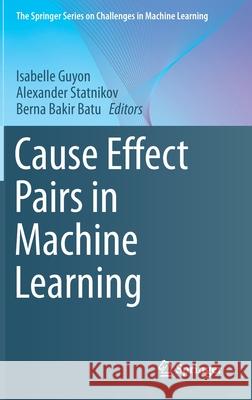Cause Effect Pairs in Machine Learning » książka
topmenu
Cause Effect Pairs in Machine Learning
ISBN-13: 9783030218096 / Angielski / Twarda / 2019 / 372 str.
Cause Effect Pairs in Machine Learning
ISBN-13: 9783030218096 / Angielski / Twarda / 2019 / 372 str.
cena 562,23
(netto: 535,46 VAT: 5%)
Najniższa cena z 30 dni: 501,19
(netto: 535,46 VAT: 5%)
Najniższa cena z 30 dni: 501,19
Termin realizacji zamówienia:
ok. 16-18 dni roboczych.
ok. 16-18 dni roboczych.
Darmowa dostawa!
Kategorie:
Kategorie BISAC:
Wydawca:
Springer
Seria wydawnicza:
Język:
Angielski
ISBN-13:
9783030218096
Rok wydania:
2019
Wydanie:
2019
Numer serii:
000904305
Ilość stron:
372
Waga:
0.75 kg
Wymiary:
23.5 x 15.5
Oprawa:
Twarda
Wolumenów:
01
Dodatkowe informacje:
Wydanie ilustrowane











